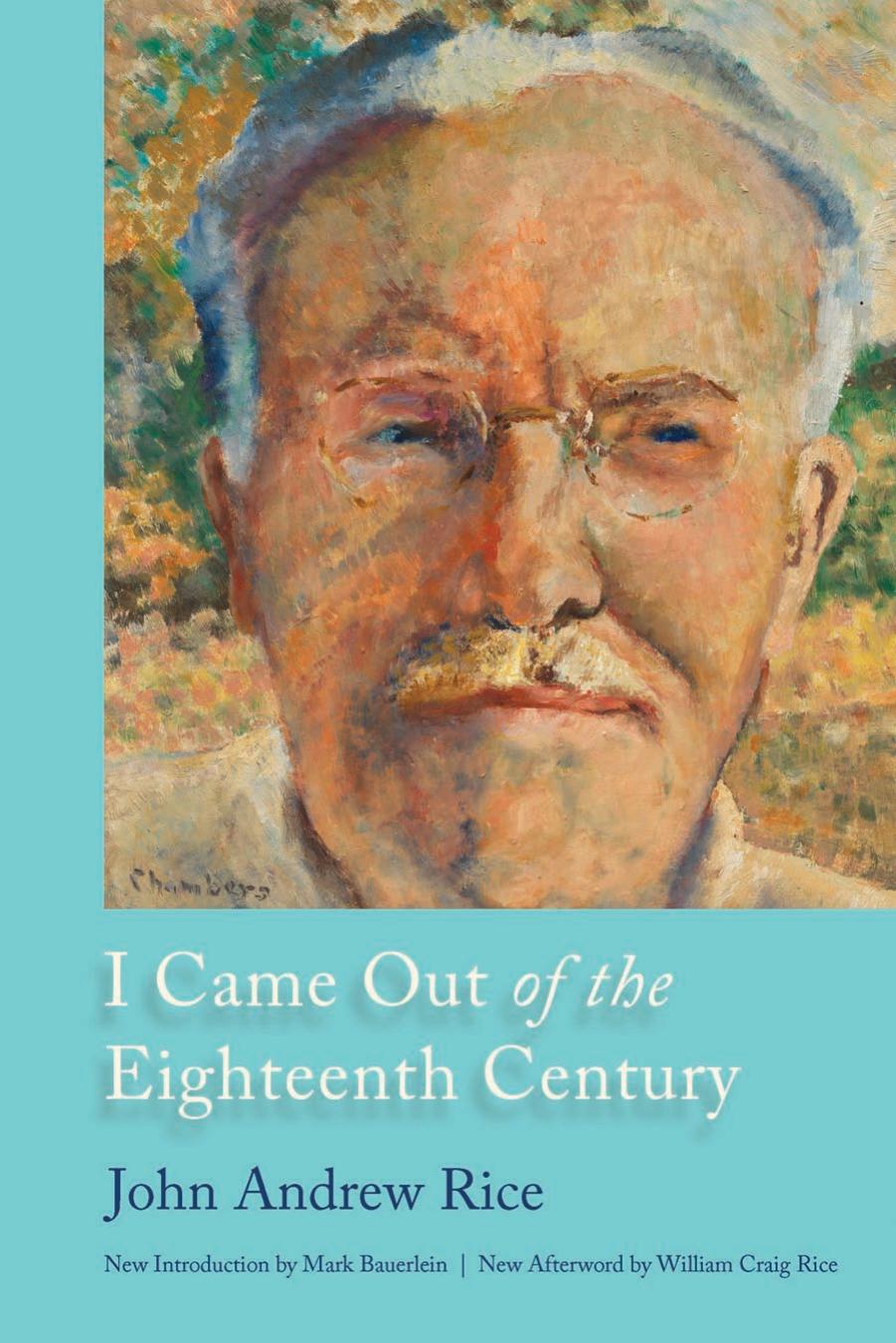I Came Out of the Eighteenth Century by John Andrew Rice

Author:John Andrew Rice [Rice, John Andrew]
Language: eng
Format: epub, pdf
Tags: Biography & Autobiography, General, History, United States, State & Local, South (AL; AR; FL; GA; KY; LA; MS; NC; SC; TN; VA; WV), Social Science, Sociology
ISBN: 9781611174373
Google: 2iW6BwAAQBAJ
Barnesnoble:
Publisher: Univ of South Carolina Press
Published: 2014-08-14T00:00:00+00:00
CHAPTER V
Webb School
AS A MAN WHO HAS BEEN CHEATED IN BUSINESS OR LOVE OR ANY OF the things that happen will toss on his bed through the sleepless night, going over each step in the transaction and saying to himself, âIf I had done this,â âIf I had not done that,â and rises with the sun, full of anger and violence and despair; so the South after the Civil War. At every crossroad, in every country store, wherever men gathered, the Confederate veteran was present to tell how the South had beenânot defeated, never thatâbilked, cheated, tricked out of victory, overwhelmed. In the North, I am told, which is what we called all of America outside the South, listeners grew impatient at the talkative old man (anotherâs victory is a bore) and walked off into the future, but for the South there was no future. Stunned by their overwhelming, men and women wandered about in a dream world, a world of incomparably brave men and women every one a Helen, and listened eagerly to the words of the old men who had returned from the bright past. Boys listened too. âIf weâd just âa had one more company, weâd âa licked âem,â the old man said, and the boy became that company.
Anger, violence, despair, all were in us and in all of us, and longing for another chance we knew would never come. (If Wilson had remembered his childhood, he might have brought peace to Germany; but Wilson was also a Southern Presbyterian, coldly violent.) We knew the chance would never come, but we got ready for it. We kept our violence in condition, by fist fights (many of my age-fellows carried brass knuckles), cutting scrapes (every one carried a knife), brawls at political rallies. (Ben Tillman often could not make himself heard above the din.)
Our violence was schooled, literally, in another way. The South was, and still is, dotted with military schools, academies and colleges. Violence was also curbed, channeled, by them. When Clemson College was established in South Carolina for the training of farmer boys, some one asked Ben Tillman why he had made it military. âHowân hell do you think we could keep these wild boys down?â he asked in answer.
Tillman, the first of the Southern dictators, knew what he was talking about, as he always did when it came to knowing his people. The Southerner, for all his easy ways, is quick to anger. âTechyâ (touchy), âficetyâ (like a fice, a mongrel pup, nervous and misunderstood), âmeaner ân a blue-gum niggerâ (the bite of a âblue-gum niggerâ was poisonous)âthese were some of the regional words to describe the extremes, but we were all, in our several ways, wild.
The first task of a school was therefore to tame a boy, to match violence with violence; by means of the rod and peach-tree switch to make of him a gentleman (chivalry is codified violence) and, hopefully, a scholar. âSchoolâ meant private school, if a boy was to be prepared for college or for lifeâthe preparations were the same.
Download
I Came Out of the Eighteenth Century by John Andrew Rice.pdf
This site does not store any files on its server. We only index and link to content provided by other sites. Please contact the content providers to delete copyright contents if any and email us, we'll remove relevant links or contents immediately.
Wondrous Transformations by Alison Li(770)
Madame Figaro by 27 Janvier 2023(653)
William Tryon and the Course of Empire by Paul David Nelson(466)
If Wishes Were Coffee by Moore Michelle(433)
Tabloid Love by Bridget Harrison(423)
Growing Up Underground by Steven Heller(401)
Against All Odds by Alex Kershaw(399)
Jacob H. Schiff by Naomi W. Cohen(385)
Nephew by M.K. Asante(362)
Against All Odds: A True Story of Ultimate Courage and Survival in World War II by Kershaw Alex(358)
From Loyalists to Loyal Citizens by Valerie H. McKito(347)
Working on the Dock of the Bay by Michael D. Thompson(346)
Bronx by Jerome Charyn(345)
The Missionary of Wall Street: From Managing Money to Saving Souls on the Streets of New York by Stephen F. Auth(339)
Crossing Highbridge by Waters Maureen;(335)
Beware of Limbo Dancers by Reed Roy;(331)
Growing Up with Clemente by Peterson Richard;(325)
Studying Wisconsin by Martha Bergland & Paul G. Hayes(319)
Pioneer Mother by Hillary Brown(316)
